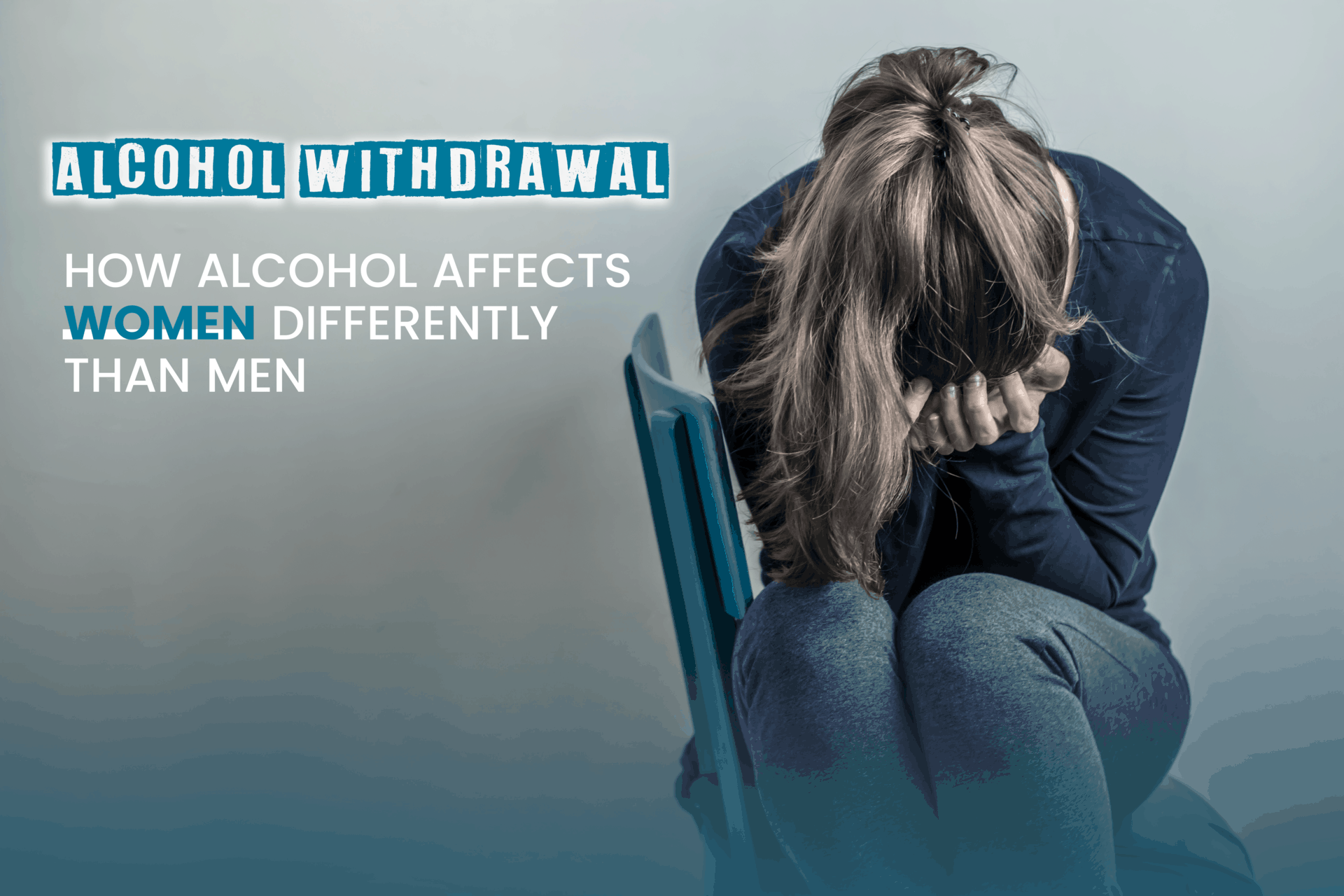Until the late 1990s, almost all clinical studies on alcohol were done on men only. Women were thought to have no different consequences of alcohol addiction than the opposite gender. Most of the gender-based differences in alcohol consumption’s impact on the body weren’t discovered until recent decades; advanced research shows that alcohol consumption affects women differently compared to men, and often the consequences are far worse.
Alcohol Addiction Does Not Discriminate
Alcohol addiction does not discriminate against race, gender, or age. According to the 2019 National Survey on Drug Use and Health (NSDUH) in America, 25.8% of people in the age bracket of 18 or older reported that they engaged in binge drinking in the last month; 6.3% said that they were involved in heavy alcohol drinking in the past month.
Regardless of your sex, age, or race, some long term effects of alcohol addiction are the same:
- Hepatitis
- Cirrhosis
- Liver failure
- Gastrointestinal issues
- Increased blood pressure
- Heart disease
- Cancerous tumor developments
The World Cancer Research Fund and American Institute for Cancer Research have connected alcohol addiction to cancerous tumors of the:
- Mouth
- Pharynx
- Larynx
- Throat
- Colon
How Does Alcohol Affect Men and Women Differently?
Latest statistics from the National Institute on Alcohol Abuse and Alcoholism show that 68% of women in the US have at least one drink a year, almost 14% consume more than seven drinks a week, and at least 13% of American women, are heavy alcohol consumers.
Alcohol addiction in women shows an increased number of medical disorders relative to men. Although men are more likely to drink alcohol and drink more significant amounts, differences in body structure and chemistry lead most women and take more time to metabolize alcohol and .retain more of it.
At every stage of life, women who become alcohol-dependent suffer the consequences. What’s most dangerous is the severe effects of alcohol addiction on pregnant women. Alcohol directly affects developing fetuses and leads to permanent damage, limited growth, fetal alcohol syndrome, or miscarriage.
How Are Women More Vulnerable to The Effects of Alcohol?
Women’s bodies are built differently than men’s, both physically and biologically. They metabolize alcohol consumption differently, and they also have very different emotional effects and tend to develop alcohol addiction in much less time.

Scientific studies reveal that women produce smaller quantities of an enzyme called alcohol dehydrogenase (ADH), which is released in the liver and breaks down alcohol in the entire body. Since the body fat holds alcohol while water helps disperse it, women generally experience a more dramatic physiological response to alcohol because of their naturally higher body fat levels and lower body water levels. This exposes their organs to higher concentrations of alcohol for more extended periods. As a result, any woman drinking one ounce of alcohol is roughly equivalent to two ounces for a man.
Consequences of Alcohol Addiction in Women
Since women have different biological vulnerabilities and metabolize alcohol differently, they also are more vulnerable to alcohol-related organ damage and trauma. Gender differences in metabolism, brain chemistry; and genetic risk factors continue to put women who drink at higher risk than men for certain serious medical consequences of alcohol use, including:
- Liver,
- Brain damage
- Heart damage
- Suicidal deaths
- Alcohol-related mishaps
- Coronary illness
- Stroke
- Cirrhosis
- Breast Cancer
Female alcoholics have death rates 50 to 100% higher than heavy drinking males.
Higher concentrations of alcohol in the blood cause women who drink to become more impaired than men after consuming an equal amount of alcohol. Research also suggests that women are more prone to trauma resulting from traffic accidents and have a higher relative risk of driver casualty than men at equivalent blood alcohol concentrations.
Using MRI, brain scans of alcoholics show that women’s brains are more sensitive to alcohol consumption. Researchers found that women may be more vulnerable to alcohol-induced brain damage and increased risk from alcohol withdrawal.
Alcohol Withdrawal
Alcohol addiction has a depressive effect on the system. It slows down brain function and changes the way your nerves function, like sending messages back and forth to different organs in the body. Since the brain is almost continuously exposed to this depressant effect, your central nervous system adjusts to having alcohol in the body at all times.

When a person decides to fight their alcohol addiction and suddenly stops drinking after long-term use, the brain stays in this active state and starts producing naturally stimulating chemicals (such as serotonin or norepinephrine) in larger quantities than usual. This causes alcohol withdrawal.
Symptoms of Alcohol Withdrawal
People with alcohol addiction may develop a physical and emotional dependency on alcohol. Alcohol withdrawal can be difficult and life-threatening; in most cases, professional help is needed to get through this process safely. Addiction treatment centers that offer medically assisted detoxification and inpatient treatment options are best suited for helping with alcohol withdrawal symptoms.
It is the best practice to consult a doctor for alcohol withdrawal from your body. The doctors carefully run a few medical checkups, do blood tests, checking for alcohol-related damage to your liver, heart, blood cell counts, and gastrointestinal tract. The doctor will evaluate your everyday eating habits and check for any potential vitamin deficiencies.
Symptoms of alcohol withdrawal include:
- Anxiety
- Nervousness
- Nausea
- Seizures
- High blood pressure
- Irregular heartbeat
- Heavy sweating
- Insomnia
- Shaky hands
- Severe headaches
- Alcohol hallucinosis
- Loss of appetite
- Elevated blood pressure
- Rapid emotional changes
- Paleness
With a proper diet and strictly following the instructions, alcohol withdrawal symptoms typically improve within two weeks, as suggested by the doctor. However, a few clients may experience prolonged symptoms lasting longer, depending on their immunity levels and drinking habits.
Prevention and Treatment for Alcohol
Alcohol withdrawal symptoms can be significantly reduced or even eliminated with proper medical consultation. Your doctor can advise and prescribe medicines that make withdrawal symptoms more tolerable.
Medications prescribed to lessen alcohol withdrawal symptoms:
- Benzodiazepines
- Chlordiazepoxide (Librium)
- Lorazepam (Ativan)
Almost all people with alcohol addiction who experience withdrawal symptoms have a severe shortage of several vitamins and minerals like
- Folate
- Thiamine
- Magnesium
- Zinc
- Phosphate
Professional monitoring of nutritional supplements helps to ensure that you get proper care to avoid any long-term damage. Your doctor may also help you get in touch with resources to abstain from alcohol addiction again.
For the moment, aside from the medical adjustments being made, women and men generally receive the same track of treatment recommendations. However, you may find higher success in seeking out treatment programs with support groups specifically geared towards women and alcohol-related issues.
Pacific Sands Recovery offers Detox, and Inpatient services for people experiencing withdrawal symptoms as a result of alcohol abuse. Call us today to talk to one of our care coordinators for free.
Addiction ends here.
